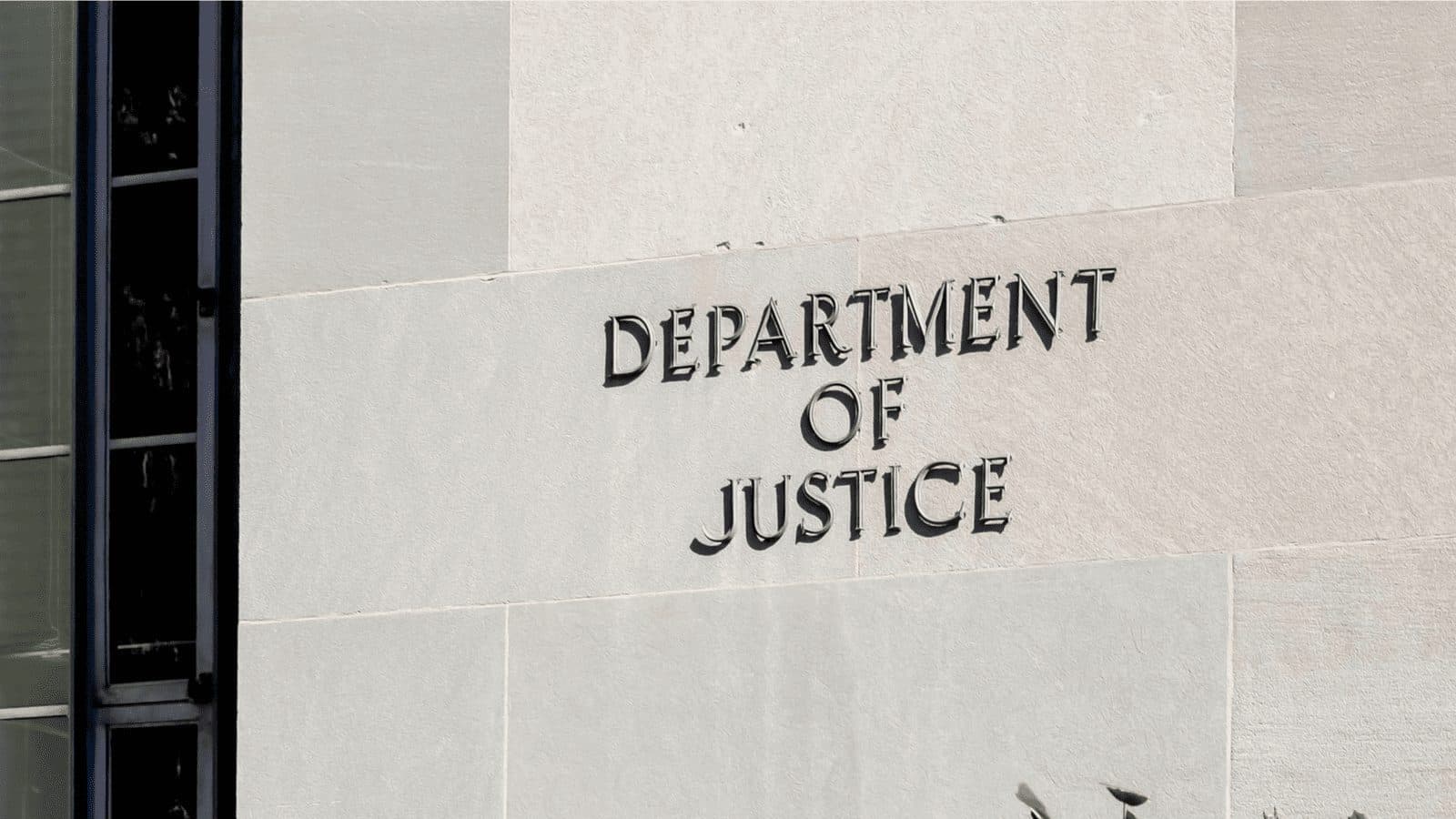Couple Arrested as Government Recovers $3.6B in Stolen Bitcoin
The individuals allegedly conspired to launder 119,754 bitcoins that were stolen from the platform after a hacker breached the systems and made over 2,000 unauthorized transactions

Department of Justice | Source: Shutterstock
- Both crimes carry a total maximum sentence of 25 years in prison
- It’s the department’s largest financial seizure ever, Deputy Attorney General Lisa Monaco said in a statement
The US government has recovered the majority of the cryptocurrency stolen during the 2016 Bitfinex hack and arrested a married couple allegedly linked to it.
In 2016, hackers stole 119,755 bitcoin, worth approximately $5.3 billion at the current price, from the cryptocurrency exchange. The Department of Justice said Tuesday that law enforcement had recouped more than $3.6 billion so far.
This is the department’s largest financial seizure ever, Deputy Attorney General Lisa Monaco said in a statement. “[Today’s arrests] show that cryptocurrency is not a safe haven for criminals,” Monaco said.
New York residents Ilya Lichtenstein, 34, and Heather Morgan, 31, were arrested for conspiracy to launder cryptocurrency and money that was stolen during the hack six years ago. They were also charged with conspiracy to defraud the US.
Both crimes can carry a total maximum sentence of 25 years in prison. They are scheduled to make their first appearances in a Manhattan federal court Tuesday afternoon.
“In a futile effort to maintain digital anonymity, the defendants laundered stolen funds through a labyrinth of cryptocurrency transactions,” Monaco said. “Thanks to the meticulous work of law enforcement, the department once again showed how it can and will follow the money, no matter what form it takes.”
Lichtenstein and Morgan allegedly conspired to launder 119,754 bitcoins that were stolen from the platform after a hacker breached the systems and made over 2,000 unauthorized transactions.
“Those unauthorized transactions sent the stolen bitcoin to a digital wallet under Lichtenstein’s control,” according to court documents. “Over the last five years, approximately 25,000 of those stolen bitcoin were transferred out of Lichtenstein’s wallet via a complicated money laundering process that ended with some of the stolen funds being deposited into financial accounts controlled by Lichtenstein and Morgan.”
The remainder of the stolen funds, about 94,000 bitcoins, remain in the wallet used in the hack.
At the time of the theft, bitcoin was trading at $612, valuing the heist at $73.39 million — less than one 70th of its current worth.
Bitfinex said it hoped to work with the U.S. Department of Justice to retrieve the stolen bitcoin. “We will provide further updates on our efforts to obtain a return of the stolen bitcoin as and when those updates are available,” the company said.
Prior to this, global law enforcement and other private sectors helped Bitfinex recover about 27.66 and 6.5 bitcoin in February 2019 and December 2021, respectively.
The complaint alleges the couple used a handful of laundering techniques, including using fictitious identities to set up online accounts and utilizing computer programs to automate transactions.
“Financial crime strikes at the core of our national and economic security,” Acting Executive Associate Director Steve Francis of Homeland Security Investigations said in a statement. “With a hack of this magnitude, public and private sector collaboration is crucial to ensure continued consumer confidence in our financial system.”
Crypto platforms in general have been struck by a number of exploits, including several that took place this year.
Earlier this month, hackers stole 120 ether, or $320 million, from the Wormhole protocol in the second-largest DeFi hack to date.
At the end of January, DeFi (decentralized finance) protocol Qubit Finance lost millions of dollars to a hack after 206,809 Binance Coin, roughly $80 million, were stolen.
The DOJ was not available for comment on Tuesday.
This story was updated on Feb. 9, 2022, at 12:50pm ET, with additional details on the stolen funds and Bitfinex’s efforts to recover them.
Get the news in your inbox. Explore Blockworks newsletters:
- The Breakdown: Decoding crypto and the markets. Daily.
- 0xResearch: Alpha in your inbox. Think like an analyst.






